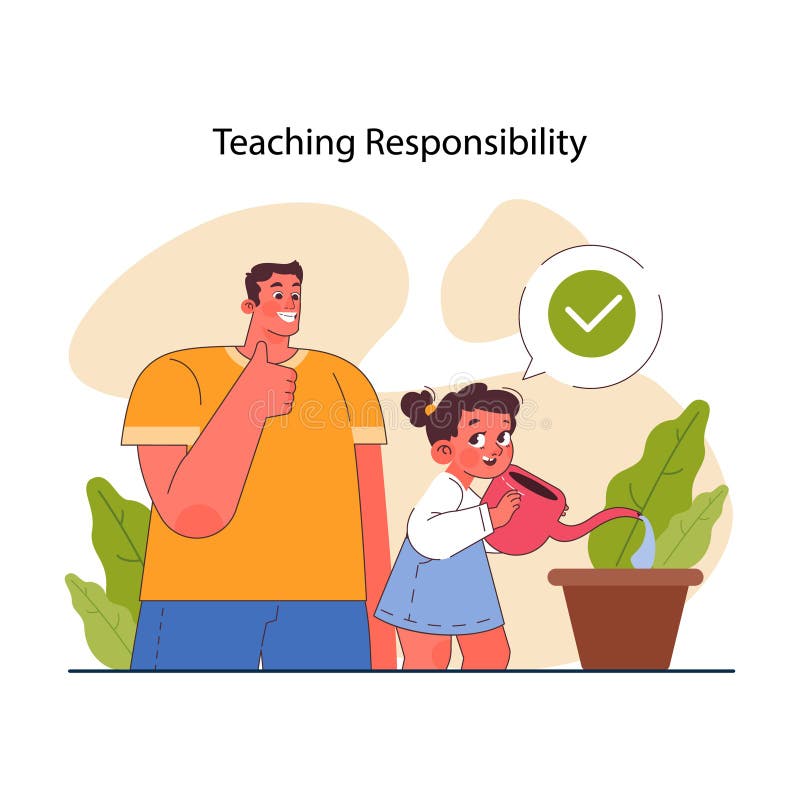Parenthood is a journey that tests our strength, patience, and love in ways we never imagined. As parents, we want nothing more than to see our children grow up to be happy, well-adjusted individuals. However, with the constant demands of modern life, it can be easy to get caught up in the daily grind and lose sight of what truly matters. This is where positive parenting comes in – a philosophy that goes beyond mere techniques and focuses on nurturing the physical, emotional, and intellectual well-being of our children. In this guide, we will delve into the core principles of positive parenting and explore techniques to build a strong, loving relationship with your child while guiding them towards a flourishing life.
Understanding the Principles of Positive Parenting
Positive parenting is an approach that emphasizes empathy, respect, and understanding of child development. It recognizes that each child is unique and has their own needs, personalities, and learning styles. Rather than relying on punishment or control, positive parenting focuses on building a strong parent-child relationship, fostering intrinsic motivation, and guiding children towards healthy choices.
Collaborative Mindset
One of the fundamental principles of positive parenting is adopting a collaborative mindset. This means viewing the parent-child relationship as a partnership rather than a power struggle. In this partnership, both parties are valued and respected, and decisions are made through open communication and mutual understanding.
Unconditional Love and Acceptance
Another essential aspect of positive parenting is showing unconditional love and acceptance to your child. This means loving them for who they are, regardless of their actions or behaviors. When children feel unconditionally loved and accepted, they are more likely to have a healthy self-esteem and develop secure attachments with their parents.
Child-Centered Approach
Positive parenting also has a child-centered approach, meaning that the child’s well-being is at the center of all decisions and actions. This involves recognizing and respecting a child’s individuality, preferences, and needs while guiding them towards positive behaviors.
Positive Reinforcement
Positive reinforcement is an essential aspect of positive parenting. Instead of focusing on punishment for misbehavior, this approach highlights the importance of praising and acknowledging good behavior. Children respond more positively to praise and are more likely to repeat the desired behavior when it is rewarded.
Building Strong Parent-Child Relationships
The foundation of positive parenting lies in building a strong, loving relationship with your child. This relationship is the key to open communication, trust, and mutual respect. Here are some tips on how to strengthen your bond with your child.
Spend Quality Time Together
In today’s fast-paced world, it can be easy to get caught up in work, household tasks, and other responsibilities. However, it is crucial to make time to connect with your child regularly. This means putting away distractions and spending quality time together without any agenda or distractions. It could be something as simple as reading a book together, playing a game, or going for a walk.
Listen Actively
Active listening is an essential aspect of building a strong parent-child relationship. It means being fully present and paying attention to what your child is saying without interrupting or judging. This helps children feel heard and understood, fostering a sense of trust and openness in the relationship.
Show Genuine Interest
Children have a natural curiosity about the world, and they love to share their interests and discoveries with their parents. As a positive parent, it is important to show genuine interest in your child’s hobbies, passions, and experiences. This not only strengthens the parent-child bond but also boosts a child’s self-esteem and confidence.
Be Consistent
Consistency is crucial in positive parenting. It means following through with consequences and rewards, keeping promises, and maintaining a routine. When children know what to expect from their parents, they feel secure and are less likely to act out.
Effective Communication Strategies
Communication is the key to any relationship, and this holds true for parent-child relationships as well. Positive parenting emphasizes open, honest, and respectful communication. Here are some strategies to help improve communication with your child.
Be Mindful of Your Tone and Body Language
Children are highly perceptive and can pick up on subtle cues from their parents’ tone and body language. As a positive parent, it is important to be mindful of your tone and body language when communicating with your child. Avoid using harsh or critical tones and try to maintain an open and welcoming posture.
Encourage Open Dialogue
Positive parenting encourages open dialogue with children. This means creating a safe space where they can freely express their thoughts, feelings, and concerns without fear of judgment. It is important to listen attentively and validate their emotions, even if you don’t agree with them.
Use “I” Statements
When discussing issues or conflicts with your child, it is helpful to use “I” statements instead of “you” statements. For example, saying “I feel hurt when you don’t listen to me” instead of “You never listen to me.” This approach avoids blame and encourages problem-solving and understanding.
Practice Active Problem-Solving
Instead of imposing solutions on your child, it is important to involve them in problem-solving. This means listening to their perspective, exploring different solutions together, and coming to a mutual decision. This not only helps children feel heard and respected but also teaches them valuable problem-solving skills.
Encouraging Positive Behavior and Discipline
Discipline is often a challenging aspect of parenting, and it can be especially tricky in the context of positive parenting. However, positive discipline focuses on teaching children the skills they need to make positive choices rather than punishing them for negative behaviors. Here are some tips for encouraging positive behavior and effective discipline.
Set Clear and Age-Appropriate Boundaries
Boundaries are an essential aspect of positive parenting. They help children understand expectations and limits, which in turn promotes self-discipline and responsibility. When setting boundaries, it is crucial to take into consideration your child’s age, abilities, and temperament.
Use Natural Consequences
Instead of imposing arbitrary consequences, positive parenting utilizes natural consequences to teach children about the consequences of their actions. This means allowing children to experience the natural outcome of their behavior. For example, if a child refuses to wear a jacket, they may feel cold and learn the importance of wearing warm clothing.
Avoid Punishment
Punishment often involves using fear or control to force a child to behave in a certain way. This can have negative effects on a child’s self-esteem and relationship with their parents. Positive parenting avoids punishment and instead focuses on teaching children the skills they need to make better choices.
Practice Positive Time-Outs
When a child needs a break from a situation, positive parenting uses “time-outs” as an opportunity for them to calm down and reflect on their behavior. These time-outs are not meant to be isolating or punitive but rather a chance to reset and regroup before addressing the issue at hand.
Fostering Emotional Intelligence and Empathy
In today’s fast-paced world, emotional intelligence and empathy are crucial skills that can help children navigate relationships and cope with challenges. Positive parenting focuses on nurturing these skills through various techniques.
Encourage Emotional Expression
Positive parenting encourages children to express their emotions freely, without judgment. This means acknowledging and validating their feelings and helping them label and recognize different emotions. This helps children develop emotional awareness and regulate their emotions effectively.
Teach Problem-Solving Skills
Problem-solving skills are essential for developing emotional intelligence. As a positive parent, it is important to engage in problem-solving with your child, whether it is a conflict with a sibling or a challenging situation at school. This not only teaches them to find solutions but also builds their confidence and self-esteem.
Practice Empathy
Empathy is the ability to understand and share someone else’s feelings. As parents, it is important to model empathy towards your child and others. This involves acknowledging your child’s feelings and perspective, even if you don’t agree with them.
Encourage Acts of Kindness
Positive parenting also focuses on fostering empathy through acts of kindness. This can involve encouraging children to help others in need, volunteering as a family, or simply practicing random acts of kindness towards each other.
Creating a Supportive and Nurturing Home Environment
The home environment plays a crucial role in a child’s development and well-being. A positive home environment should be supportive, nurturing, and conducive to growth and learning. Here are some tips for creating such an environment.
Promote a Healthy Lifestyle
A healthy lifestyle is essential for physical and mental well-being. As a positive parent, it is important to encourage healthy eating habits, regular exercise, and plenty of sleep. This promotes overall health and sets a good example for children to follow.
Create a Safe Space
Children should feel safe and secure in their own homes. This means providing a physical space that is free from hazards and age-appropriate toys and activities. It also means creating an emotionally safe space where children feel comfortable expressing themselves without fear of judgment or punishment.
Model Positive Behaviors
Children learn by observing their parents’ behavior. As a positive parent, it is important to model the behaviors you want your child to emulate. This includes being kind, respectful, and empathetic towards others, as well as practicing self-care and managing emotions effectively.
Encourage Independence
Positive parenting also encourages independence in children. This means allowing them to make their own choices and decisions whenever appropriate. It also involves giving them responsibilities and holding them accountable for their actions. This promotes self-esteem, independence, and responsibility in children.
Balancing Boundaries and Freedom for Healthy Development

As parents, it can be challenging to find a balance between setting boundaries and giving children the freedom to explore and make decisions on their own. Positive parenting strives to find a healthy balance between these two aspects.
Set Reasonable Expectations
Setting expectations that are too high or unrealistic can lead to frustration and disappointment for both parents and children. Positive parenting focuses on setting reasonable expectations based on a child’s abilities and age. This promotes a sense of achievement and motivation in children.
Allow for Freedom of Choice
Giving children some autonomy over their choices is an essential aspect of positive parenting. This means allowing them to make decisions about things like clothing, food, and activities within reason. This helps children develop decision-making skills and encourages them to take responsibility for their choices.
Be Flexible
Flexibility is crucial in positive parenting. It means being open to new ideas, changing plans when necessary, and adapting to your child’s needs and interests. This not only shows children that their opinions and feelings are valued but also promotes creativity and problem-solving skills.
Communicate Effectively About Boundaries
It is important to communicate with your child when setting boundaries. This involves explaining why certain behaviors are not acceptable and discussing consequences if those boundaries are crossed. This helps children understand the reasoning behind the rules and encourages cooperation.
Conclusion

Positive parenting is a journey that requires patience, understanding, and a willingness to learn and grow alongside our children. By following the core principles of positive parenting and implementing effective techniques, we can cultivate strong, loving relationships with our children while fostering their physical, emotional, and intellectual well-being. Remember to always approach parenting with empathy, respect, and collaboration, and you will be on your way to mastering positive parenting and nurturing your child’s growth and development.

